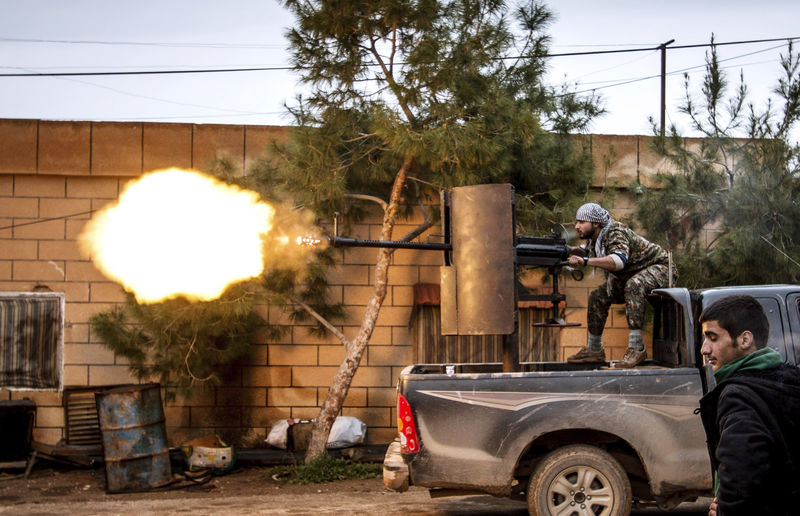By Tom Perry
BEIRUT (Reuters) - Kurdish forces in Syria say deepening military coordination with the United States and its allies has helped them make rapid advances against Islamic State in an offensive under way in the northeast near the border with Iraq.
The Kurdish People's Protection Units (YPG) have seized two towns and dozens of villages from Islamic State (IS) in an offensive that got under way on Feb. 21 in the strategically important Hasaka province that borders IS-held areas in Iraq.
The advance, which has cut at least one Islamic State supply route from Iraq, has moved much faster than the campaign for Kobani, where it took the YPG aided by Iraqi Kurdish fighters and U.S.-led air strikes some four months to defeat IS.
Explaining the rapid progress, YPG spokesman Redur Xelil credited direct coordination with the U.S.-led alliance, saying they were planning air strikes via an operations room based in Iraqi Kurdistan. "In Hasaka, the results came very quickly," Xelil said in an interview conducted via Skype.
In the early days of the Kobani campaign, the YPG had coordinated with the alliance via intermediaries, with direct contacts being established later on. "But in al-Jazeera (Hasaka), there was much greater coordination," Xelil said.
He said Islamic State had been weakened by the Kobani defeat.
REQUEST FOR WEAPONS
The development underscores emergence of the YPG as the main partner for the U.S.-led alliance in fighting Islamic State in Syria, where Washington has shunned the idea of working with President Bashar al-Assad, whom it views as part of the problem.
The Syrian army backed by allied militia has also mounted a campaign against Islamic State in Hasaka, where it seized two dozen villages last week according to the Syrian Observatory for Human Rights, which tracks the war.
The United States is about to start a programme to arm and train mainstream Syrian rebels to fight Islamic State. Mainstream rebels have been mostly outgunned by jihadist groups, including Islamic State, that now dominate the insurgency.
The U.S. cooperation with the YPG to date has overcome complications stemming from the group's ties to the PKK, a Kurdish party listed as a terrorist group in the West because of the campaign of violence it waged for Kurdish rights in Turkey.
However, the U.S.-led alliance has not met the YPG's request for weapons. "There is no response so far - neither a yes or a no," said Xelil.
Islamic State has shown signs of strain in Syria since its defeat in Kobani, a Kurdish town at the border with Turkey.
The YPG campaign in the northeastern Syria has resulted in Islamic State's defeat in the towns of Tel Hamis and Tel Brak. The YPG has also taken control of a road used by Islamic State to bring supplies from al-Houl at the Iraqi border.
